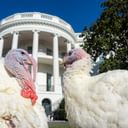In a recent New York Times op-ed, John Farmer, senior counsel to the 9/11 commission and a former New Jersery attorney general, states that seeking the death penalty for Zacarias Moussaoui detracts from U.S. efforts to seek justice against senior Al Qaeda officials who plotted and carried out the 9/11 attacks. Farmer claims Moussauoi, who was in jail as terrorists plotted and carried out the events of 9/11, was not the “20th hijacker” and is a “poor stand in” for more senior level Al Qaeda leaders who are also in U.S. custody:
Through a perverse confluence, Mr. Moussaoui’s interest in becoming something in death that he never was in life — important — has combined with the government’s interest in executing someone for the 9/11 attacks. The likely result is an odd form of assisted suicide, in which Mr. Moussaoui will claim martyrdom as he is executed, and the United States will claim that the rule of law has been vindicated by bringing a terrorist to justice for 9/11.
Neither claim will be justified.…
Zacarias Moussaoui is evil, and there is no doubt that he arrived here determined to kill Americans, but he was not a leader of Al Qaeda. He was not even, as initially reported, the “20th hijacker.” He was not in contact with the 9/11 hijackers in the United States. His apprehension in late August 2001 did nothing to disrupt the plot’s timing. He sat in jail while the attacks unfolded.
Based on his conduct, he should sit in jail some more. Six floors underground, with one hour outside his cell per week. For, oh, 50 more years or so. He should die there, frustrated and forgotten, embittered and anonymous. This could have been achieved without the catharsis of the penalty hearing.
(New York Times, April 11, 2006). See Federal Death Penalty, New Voices, and DPIC’s page on September 11, 2001.



